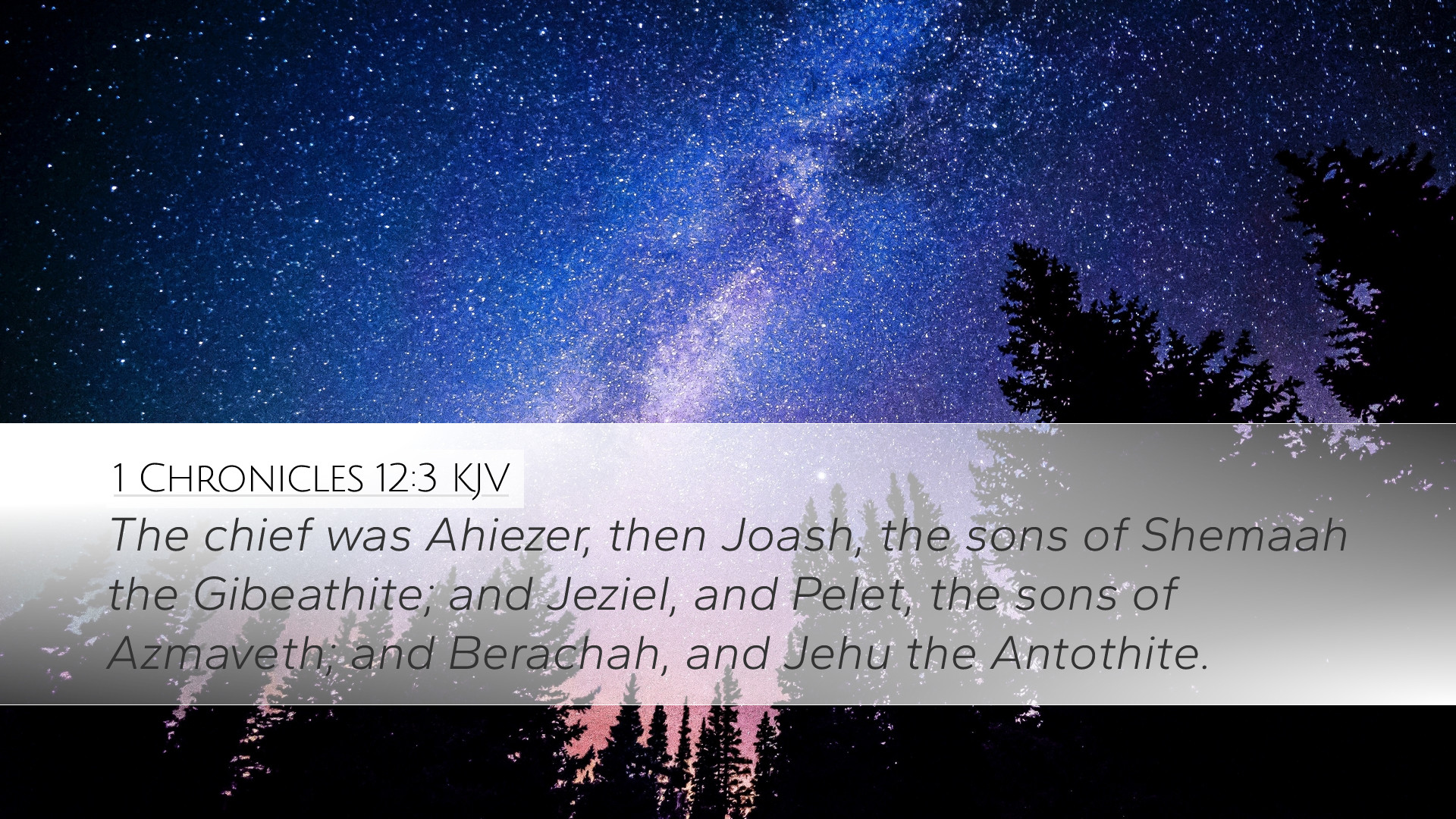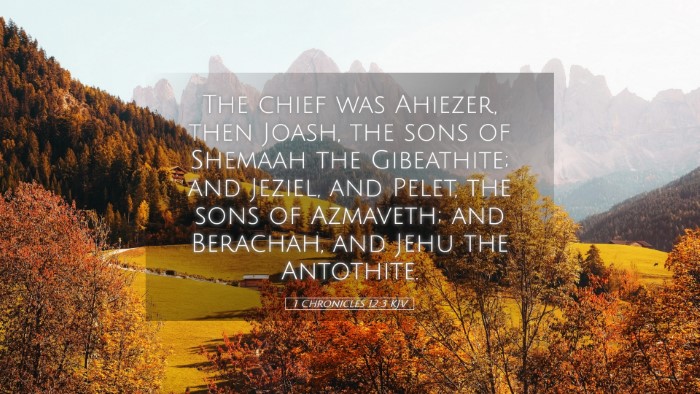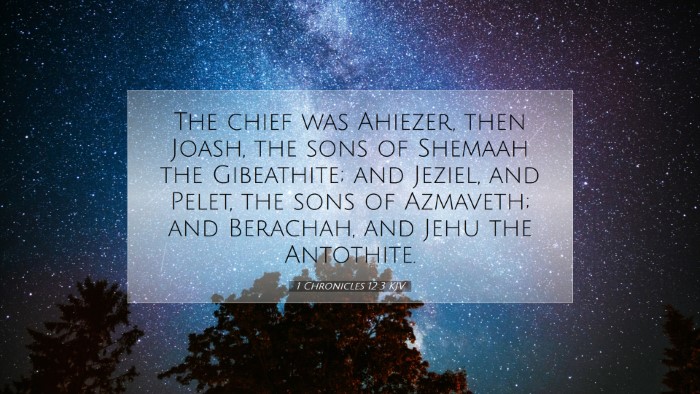Commentary on 1 Chronicles 12:3
Verse Reference: 1 Chronicles 12:3 - "The chief was Ahiezer, then Joash, the sons of Shemua the Gibeonite, and Jeziel and Pelet, the sons of Azmaveth;"
Contextual Overview
This passage falls within a historical account detailing the various tribes and clans that came to David at Ziklag, symbolizing unity in purpose and the anointing of God’s chosen leader. The chapter lists the warriors who aligned themselves with David, showcasing the legitimacy of his kingship by demonstrating the support he received from various factions within Israel.
Insights from Commentaries
Matthew Henry's Commentary
Matthew Henry highlights the importance of this chapter as it underlines the assembling of David's forces. He notes that the mention of specific names signifies an acknowledgment of their contribution and commitment. Henry emphasizes that these men were warriors who joined David not just from Judah, but from across the tribes, indicating a broad coalition behind David's leadership.
He further points out that “Ahiezer” and “Joash” are among those significant figures, suggesting a deep community bond that united them in a common cause. Their allegiance to David illustrates the providence of God in orchestrating the needed support for David during a critical time.
Albert Barnes' Notes on the Bible
Albert Barnes reflects on the character of these individuals who rallied to David. He explains that the Gibeonites were known for their valor, and by coming to support David, they were making a profound statement about their loyalty. Barnes notes the significance of the names listed, signifying their historical importance and the role they played in establishing David's rule.
Additionally, Barnes examines the implications of their gathering. It was not merely an act of joining a leader; rather, it reflected a collective recognition of David's anointing and kingship as foretold by God. The gathering of such powerful figures around David solidifies the theological theme of divine sovereignty over Israel's leadership.
Adam Clarke's Commentary
Adam Clarke offers a more detailed historical exploration of the individuals mentioned in the verse. He points out that the Gibeonites, including Ahiezer and Joash, came from a city that had a historical significance in Israel's conquest and settlement in Canaan. Clarke argues that their support for David symbolizes a reconciliation and unity among the tribes of Israel under David’s banner.
Clarke emphasizes the rich lineage and backgrounds of the individuals mentioned. By listing these names, the text honors their legacy and delineates the diverse origins of David’s supporters. Moreover, he suggests that this gathering was a fulfillment of God’s promise to David to surround him with supporters as he ascended to the throne.
Theological Significance
This verse and its surrounding context present key theological themes:
- Divine Providence: The assembling of David's men reflects God's providential care in ensuring that His chosen leader has the support required to lead Israel.
- Unity Among Tribes: The coming together of diverse groups signifies the intention behind God's covenant—unity in worship and leadership.
- Recognition of God's Anointed: The allegiance shown by David's followers illustrates the recognition of God's anointed leader chosen to guide His people toward fulfillment of His promises.
Application for Today
For pastors, students, and theologians, the insights from 1 Chronicles 12:3 compel us to reflect on the importance of unity in the body of Christ today. Just as the warriors gathered to support David, so must we unify under Christ, our King, recognizing the diversity of gifts and backgrounds that each believer brings into the community of faith.
This passage calls for an acknowledgment of the leaders God raises, encouraging the body of Christ to rally behind them in prayer, support, and collective mission. The character of those who supported David serves as an example of loyalty and dedication that should inspire modern believers in their commitment to both their leaders and their communal witness.
Conclusion
1 Chronicles 12:3, though a historical record, contains timeless truths about leadership, unity, and divine guidance. By studying the contributions of these warriors, we gain insights into the nature of godly partnership and the significance of standing united for a common purpose in the kingdom of God.


